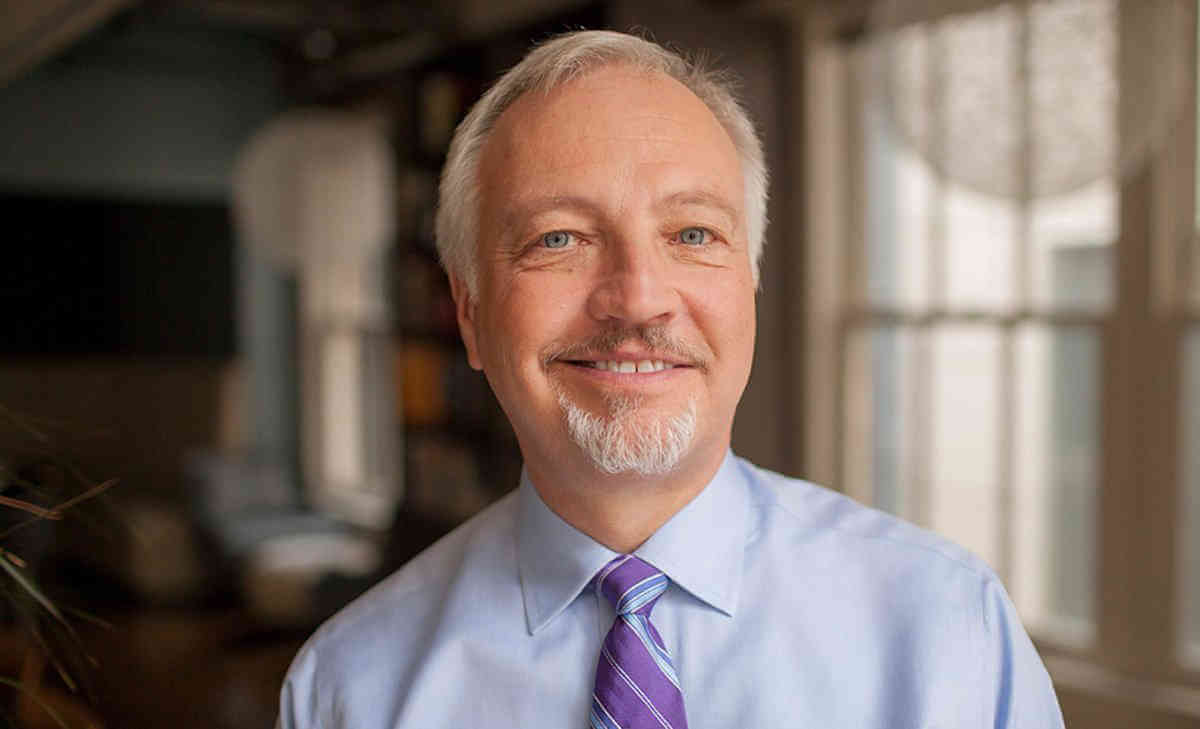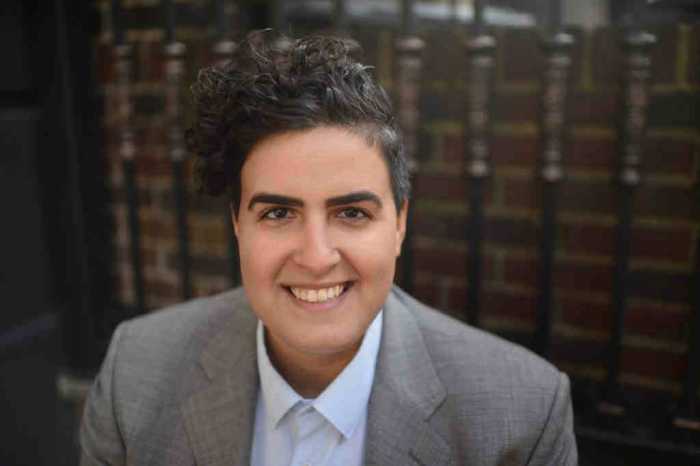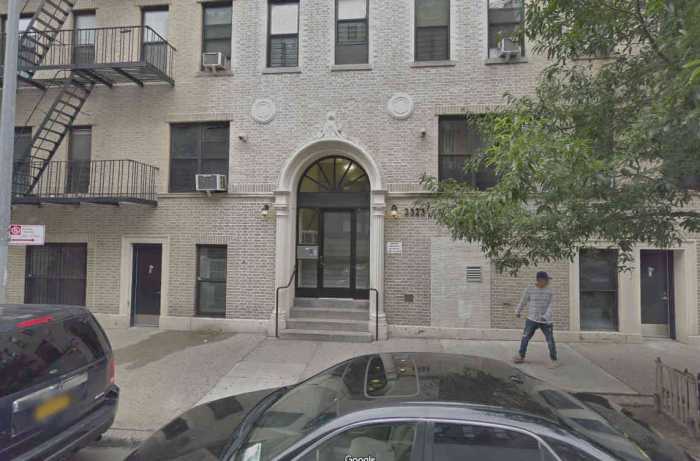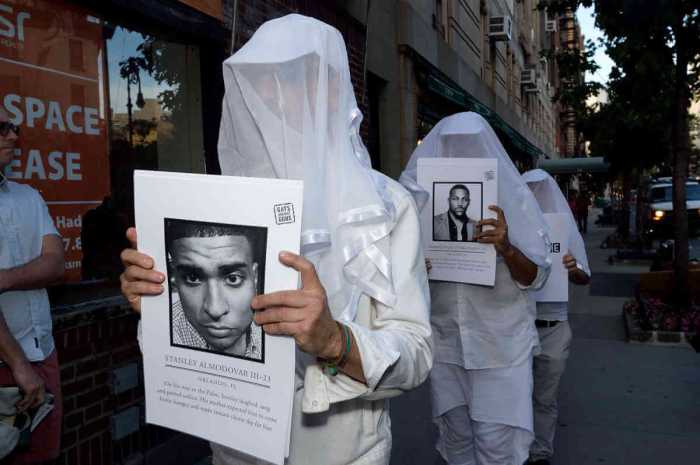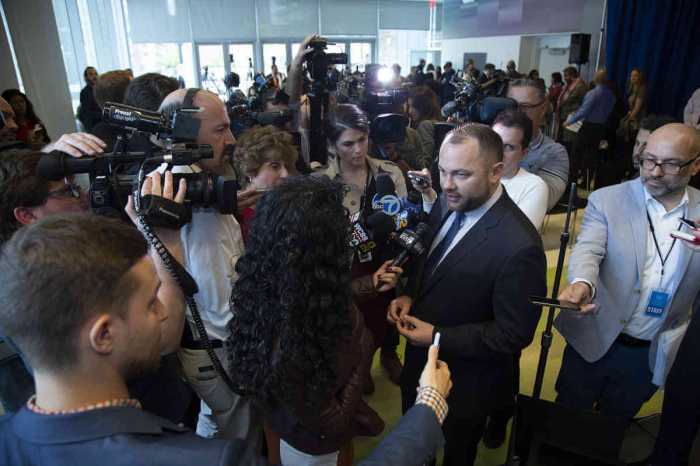A former head of New York City’s premier agency serving LGBTQ crime victims charged the current administration there with “lethargy and lack of leadership” over its role in recent developments in a 1994 rape case (see story above).
“I do understand that AVP has moved away from direct action and expressions of outrage and calls to action in response to violence (replaced by the banal ‘AVP mourns’ and ‘AVP learns’ statements),” Matt Foreman, who headed the Anti-Violence Project (AVP) from 1990 to 1996, wrote in a letter to the agency. “That said, I believe AVP has failed our community. By refusing to forcefully speak out and leverage — in any way whatsoever — a terrible injustice AVP has failed in its obligation to secure long-term policy and resource allocation reforms from the NYPD. AVP’s inaction and silence are an offense to the organization’s history and its current mission and vision statements.”
Foreman made his critique in an April 4, 2018 letter that was sent to Beverly Tillery, currently AVP’s executive director, and Dara Majors, then AVP’s board chair. Gay City News only recently obtained a copy of the letter.
The case concerned a woman who was an AVP volunteer in 1994. She was slated to speak at an AVP rally that year when she was raped in Brooklyn’s Prospect Park. In three columns, Mike McAlary, then a columnist for the Daily News, accused her of inventing the rape to promote the rally and called her a liar who would soon be arrested by police. McAlary, who died in 1998, claimed that police sources were supporting him.
Earlier this year, police revealed that DNA recovered from semen found on the woman’s clothing matched DNA from James Webb, now 68. He is currently serving a sentence of 75-years-to-life for 1998 sexual assault convictions.
Foreman and several groups that advocate for sexual assault survivors demanded an apology from the NYPD, which they received on October 28. Advocates seized the moment to press for reforms in the NYPD’s response to sexual assaults. They had a March 5 meeting with senior NYPD officials, including James O’Neill, the police commissioner, to address the NYPD’s handling of sexual assault cases. Foreman wrote that AVP was effectively absent from that advocacy work.
“AVP did not participate in the group calls to prepare for the March 5 meeting with Commissioner O’Neill,” he wrote. “Ms. Tillery did not come to that meeting, even though the heads of eight other victim assistance/ sexual assault advocacy organizations managed to do that — as did the Commissioner, the First Deputy Commissioner, the Chief of Department, the Chief of Detectives, the Chief of [Special Victims Division], the Deputy Commissioner of Collaborative Policing.”
AVP sent a lower level staffer to the meeting. Foreman wrote that AVP did not participate in drafting a follow-up letter after the meeting or in an “advocacy group call to decide how to respond to New York Magazine’s explosive March 16 story about DA Vance’s horrific handling of the sexual assault claim made against Harvey Weinstein in 2015.”
Foreman wrote that AVP said nothing about a city report that found that the NYPD’s Special Victims Division was “grossly understaffed and failing to properly investigate rape cases (a key issue in the groups’ first letter to the Commissioner on February 7 and pressed hard at the March 5 meeting)” and that “AVP did not send a representative or otherwise participate in NOW NYC’s March 29 press conference and rally at One Police Plaza calling attention to the Inspector General’s report.”
The woman raped in 1994 was wholly supportive of these advocacy efforts. When the apology was issued, she gave a single interview to the New York Times, which was organized by a publicist working with advocates. AVP was not mentioned in that story. The woman, who remains anonymous, issued a statement that also did not mention AVP.
Foreman wrote that when he first learned that the case had been resolved, he contacted Tillery. She wrote in an email to him that “Matt, as usual, we are taking the lead from the survivor.”
Foreman assumed that the woman was not interested, but later learned otherwise when he spoke with her.
“She said she had not spoken with anyone at AVP, but did want a public apology from the commissioner and, more important to her, wanted the case to be used to help make things better for other survivors seeking assistance from NYPD, particularly front line officers,” Foreman wrote. “Wow.”
Founded in 1980, advocating that the police and district attorneys respond to violence against members of the LGBTQ community was a central component of the agency’s mission. Foreman was known for organizing the broader community in support of this kind of advocacy. AVP has been far less publically engaged in recent years as some on the left have come to see police, prosecutors, and the law as never a solution to any problem and always a part of the problems facing marginalized communities.
Tillery issued a statement last year after Abel Cedeno stabbed Matthew McCree and injured Ariane Laboy in a Bronx public school. Cedeno said he was defending himself from attack after violent threats and anti-LGBTQ bullying perpetrated by a group of students the two were part of. McCree died. The Bronx district attorney originally sought murder charges against Cedeno, but he ultimately was charged with manslaughter. That case is pending.
“We do not believe that the addition of metal detectors is the real solution to this tragedy, and caution against responding to this incident of violence by increasing the policing and potential criminalization of our youth, especially youth of color,” Tillery wrote. “We strongly believe that all three youth involved are victims who needed the support and action of the adults around them to intervene, and we hope we can move forward without further demonizing them in this moment… And we call upon our communities to seek restorative and healing responses to violence that offer support, not punitive measures, to all in need.”
AVP issued a statement in response to Foreman’s specific charges. The agency noted that it continues to provide counseling to survivors, field calls from its hotline, and train others to do the same. AVP has a legal services unit and an “economic empowerment program” to assist clients.
“Our organizing team is growing and doing more advocacy to push for policies citywide to address the disproportionate violence experienced by transgender and gender nonconforming people, as well as our entire community, and is building the capacity of our partner organizations across the country to win policy changes,” the statement read.


